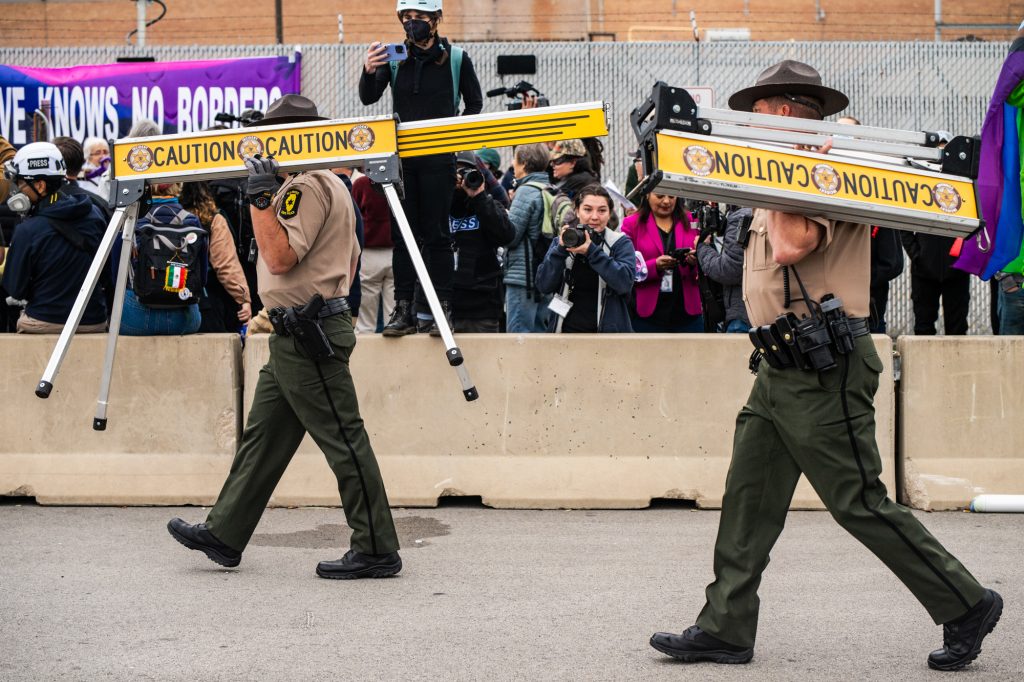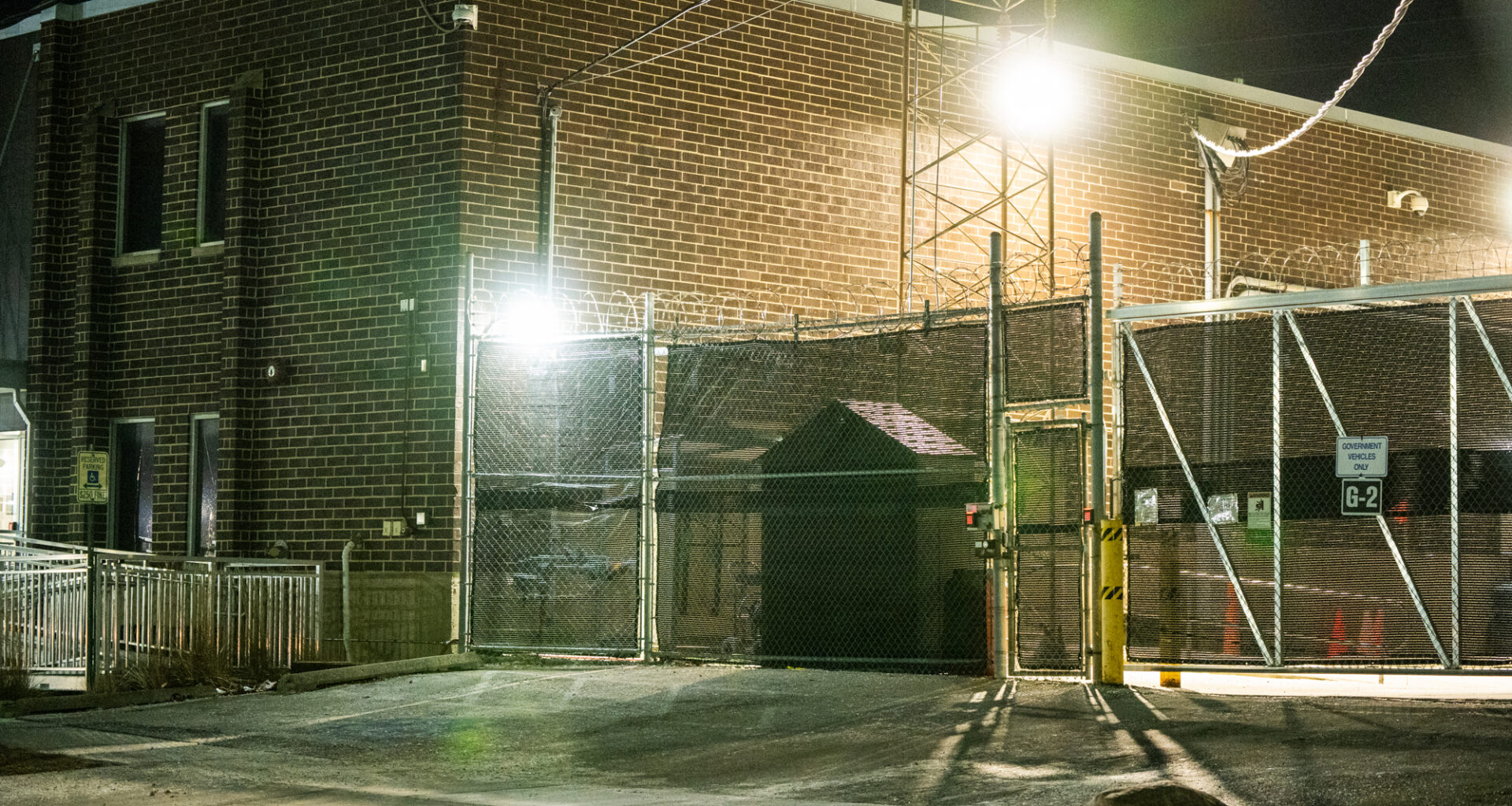SOUTH CHICAGO — A husband and father detained by federal agents on the Chicago Skyway last month is now opting to leave the country voluntarily, according to his family and immigration officials.
Jose, whose family asked not to share his last name, withdrew his request to remain in the United States last week, opting for a “pre-decision voluntary departure under safeguards,” said an ICE spokesperson.
The move would avert a formal deportation order and allow Jose to challenge his detention in court in the future. But the family faces a long and uncertain road.
The woodworker was arrested Sept. 22 at an I-94 weigh station in Chesterton, Indiana, while on his way to Michigan to deliver furniture. After a brief detention at the ICE facility in Broadview, he was transferred to southeast Texas near the border.
Despite Jose and his family having legal status and a pending asylum application, Jose was charged under a provision of the Immigration and Nationality Act. Under that law, people who entered the United States without official approval — or at the wrong place or manner — can be denied a visa or an admission, said Kalman Reznick, an attorney who initially consulted with the family in the days following Jose’s arrest.
The ICE spokesperson said the government has until Nov. 14 to carry out Jose’s removal. That means the onus is on the government to process it, Reznick said.
The family came to Chicago last year after fleeing Ecuador, where they were targeted by a drug cartel, said Jose’s wife, Stephanie. She said the family traveled more than a month to reach the United States after hiding from cartels while they secured Mexican immigration permits to fly from Tapachula to the U.S.-Mexican border.
At the time of his arrest, Jose was also sending money back home to help his oldest son, who is in college. A crowdsourcing campaign was launched by friends to help the family stay afloat as they fought to get Jose back home. It has raised nearly $9,400 of its $10,000 goal.
 Illinois State Police set up Cook County foldable barricades in the street as people protest along Beach Street near the Immigration and Customs Enforcement facility at 1930 Beach St. in Broadview, Ill. on Oct. 17, 2025. Credit: Colin Boyle/Block Club Chicago
Illinois State Police set up Cook County foldable barricades in the street as people protest along Beach Street near the Immigration and Customs Enforcement facility at 1930 Beach St. in Broadview, Ill. on Oct. 17, 2025. Credit: Colin Boyle/Block Club Chicago
Family friend Emily Bejarano said Jose’s family remains afraid for his safety. Conditions are worsening at the Port Isabel Detention Center, where Jose and other detainees have fallen ill. The family hopes to get some of Jose’s personal effects to him but aren’t certain how much time he has left, or if they’ll even be allowed to do so.
“All he has are the clothes from when they took him in,” Berjarano said.
Jose is one of 1.6 million immigrants reported by the U.S. Department of Homeland Security who have elected to voluntarily leave the country — which is often referred to by the agency as “self-deportation.” That number is hard to verify considering the lack of official government data and reluctance from undocumented residents to share information.
While the law is supposed to ensure that people receive due process, that window seems to be closing, immigration attorneys say. That includes a shift away from the practice of not deporting those who still have immigration cases pending.
“Until three weeks ago, if you entered without documents and were put in proceedings in the interior of the country, like in Chicago, you could ask a judge to release you on bond or without a bond, on recognizance. You could fight to stay here through an application for asylum,” Reznick said.
According to ICE’s website, people who have already gone before a federal immigration judge may not be able to return for a specific period of time — even if they haven’t been subject to a formal deportation order.
Reznick added that, in some cases, people who have been in the United States more than 10 years and have certain qualifying relatives could apply for cancelation of removal based on conditions like moral character, having relatives who are U.S. citizens or suffering hardships.
But they’re being denied that now because of a recent decision by the Board of Immigration Appeals stripping the right to seek bond from most undocumented residents who entered without inspection. That applies to all immigrants, regardless of how long they have been residing in the country or where they were arrested.
And others who have been in the country for less than two years, like Jose, could be at risk of being deported under expedited removal processes.
Voluntary departure can avoid the five to 10-year bans on returning to the United States that can be imposed if one is deported by the government. But immigration attorneys caution that the Trump administration has not been a reliable source of information during the president’s second term.
Still, Jose’s family remains optimistic.
“It’s been a storm, but we’re trying to stand strong through the storm,” Stephanie said.
Listen to the Block Club Chicago podcast:
